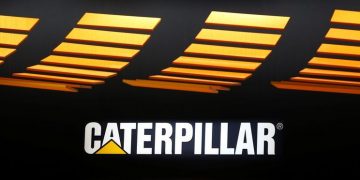Caterpillar Manufacturing Facility in Germany Recognized with Sustainability Award
Kiel Engine Center in Germany has been recognized with environmental award for the state of Schleswig-Holstein.
As the world’s leading manufacturer of diesel engines, Caterpillar is committed to developing power systems solutions to meet customer needs. Along with a clear focus on the customer, Caterpillar has been focused for years on developing engines and generator sets that reduce the emissions levels produced during operation to meet global regulation levels. However, the work done at the Kiel Engine Center in Kiel, Germany, during the manufacturing process for MaK and Cat® engines up to 16,000 kW is now being recognized through an impressive environmental protection award.
In June, Caterpillar Motoren, the manufacturing arm focused on the production of MaK and Cat engines for marine, petroleum and power generation applications, was awarded an Environmental Award from the Economic Association of Schleswig-Holstein, the northernmost state in Germany. At a celebration including the governor of Schleswig-Holstein, Caterpillar was recognized for the enormous efforts on reducing energy consumption, resource reduction and elimination of green house emissions through the manufacturing process.
“This award truly underscores our commitment to sustainable development at the Kiel Engine Center specifically, and also at Caterpillar more generally, ” explained Richard Case, Vice President of the Marine and Petroleum Power Division, headquartered in Hamburg, Germany. “We have individual teams throughout our division working hard to help our customers be more sustainable in their operations and meet global regulatory requirements, and also to increase the sustainability in our own factory and office environments. We are very honored to receive this award which helps show the great progress we have made working towards our sustainability goals.”
Specific actions noted by the nomination team for the award include changes to many of the buildings at the Kiel Engine Center, such as the installation of new cooling towers and replacement of lighting systems, both of which resulted in significant energy savings. For example, because all engines manufactured in Kiel are fully tested before shipping to the customer, the cooling system on the testbed is a vital process which requires a great deal of energy. A project was completed to automate the cooling process so that the previous manual control was replaced to individually cool the engine as necessary during different load ranges during the testing, thus aligning the cooling with actual demand. This work has already amounted to an annual CO2 reduction by 525 tons or 58 percent less energy consumption of the cooling system.


